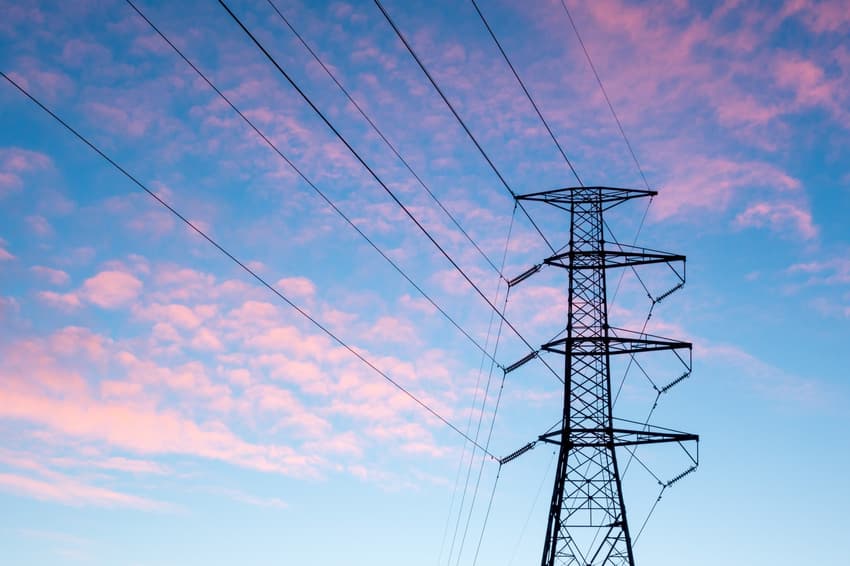ENERGY: What Norway's new grid rent model means for you

A new model for grid rent, the fee you pay the network for powering your home, will be adopted in Norway later this year. So, what will it mean for you, and will it help slash your energy bills?
Following a six month postponement, a new gird rent system will be adopted nationwide in July, the Norwegian government has announced.
Grid rent is the charge consumers pay for receiving electricity into their homes. Under the current model, grid rent is typically anywhere between 20 to 50 øre per kilowatt-hour. Those in rural areas usually pay more, while those in cities pay less.
The new model will have a lower fixed proportion of the fee with a higher part of the charge linked to total consumption, meaning homes that use more power will pay higher grid rent, while those that consume less will have lower bills.
The new model has been welcomed by the Norwegian Housing Association (NBBL).
"Now we get a fairer grid rent, where those who load the power grid the most so that the need for development increases, pay somewhat more in fixed terms than those who use little electricity at the same time," Bård Folke Fredriksen, CEO of the NBBL, told newswire NTB.
"No one wants to pay for the neighbour to charge two electric cars simultaneously during the day, when it is entirely possible to charge slowly at night when there is good capacity in the power grid," he added.
Initially, the model was meant to be adopted in the new year, but a majority in parliament opted to delay the scheme's introduction.
"The goal of the new grid rental model is to facilitate the best possible utilisation of the transmission network and a more equitable distribution of costs between customers," Minister of Petroleum Terje Aasland said in a government statement.
The government has said that, over time, the scheme would lead to lower grid rent for customers.
"Power-based grid rental will provide incentives for efficient grid utilisation, which will result in lower grid costs for electricity customers, less encroachment on nature and fewer conflicts related to grid development," Aasland said.
A transition period of two years will be introduced, and the new consumption charge will only be allowed to account for 50 percent of grid companies' revenues. The energy ministry will then assess the new model at the end of the transition peroid.
Comments
See Also
Following a six month postponement, a new gird rent system will be adopted nationwide in July, the Norwegian government has announced.
Grid rent is the charge consumers pay for receiving electricity into their homes. Under the current model, grid rent is typically anywhere between 20 to 50 øre per kilowatt-hour. Those in rural areas usually pay more, while those in cities pay less.
The new model will have a lower fixed proportion of the fee with a higher part of the charge linked to total consumption, meaning homes that use more power will pay higher grid rent, while those that consume less will have lower bills.
The new model has been welcomed by the Norwegian Housing Association (NBBL).
"Now we get a fairer grid rent, where those who load the power grid the most so that the need for development increases, pay somewhat more in fixed terms than those who use little electricity at the same time," Bård Folke Fredriksen, CEO of the NBBL, told newswire NTB.
"No one wants to pay for the neighbour to charge two electric cars simultaneously during the day, when it is entirely possible to charge slowly at night when there is good capacity in the power grid," he added.
Initially, the model was meant to be adopted in the new year, but a majority in parliament opted to delay the scheme's introduction.
"The goal of the new grid rental model is to facilitate the best possible utilisation of the transmission network and a more equitable distribution of costs between customers," Minister of Petroleum Terje Aasland said in a government statement.
The government has said that, over time, the scheme would lead to lower grid rent for customers.
"Power-based grid rental will provide incentives for efficient grid utilisation, which will result in lower grid costs for electricity customers, less encroachment on nature and fewer conflicts related to grid development," Aasland said.
A transition period of two years will be introduced, and the new consumption charge will only be allowed to account for 50 percent of grid companies' revenues. The energy ministry will then assess the new model at the end of the transition peroid.
Join the conversation in our comments section below. Share your own views and experience and if you have a question or suggestion for our journalists then email us at [email protected].
Please keep comments civil, constructive and on topic – and make sure to read our terms of use before getting involved.
Please log in here to leave a comment.